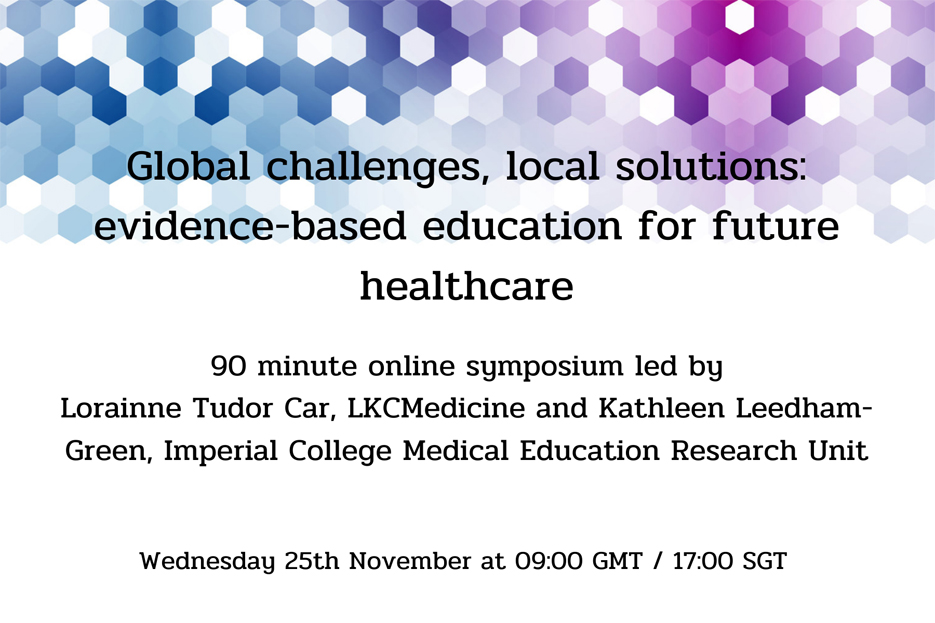
90 minute symposium led by Lorainne Tudor Car, LKCMedicine and Kathleen Leedham-Green, Imperial College Medical Education Research Unit
Wednesday 25th November at 09:00 GMT / 17:00 SGT
Register at: https://zoom.us/webinar/register/WN_I_j6EhZTTtKwhTJ78WyDVA
As clinicians we are accustomed to practising evidence-based medicine, with the synthesis of evidence and expert guidelines informing our daily practice. How might this thinking translate into educational practice, and what are the potential pitfalls? Without knowing what kind of world our students will be practising medicine in, how can we best prepare them for future healthcare?
This symposium will explore some of the ways in which evidence has been used to both re-enforce and debunk educational practices and the strategies that can be used to synthesise and apply evidence-based education. We will then take a critical look at biomedical conceptions of evidence as applied to the social, behavioural and cognitive sciences and debate strategies for practising evidence-based education in a changing world.

About Lorainne Tudor Car
Lorainne Tudor Car is an Assistant Professor of Evidence Based Medicine at LKCMedicine (Family Medicine & Primary Care) and an Honorary Senior Research fellow in Department of Primary Care and Public Health, Imperial College London. She is a methods editor to the Cochrane Public Health Group and Campbell Knowledge Translation and Implementation group and a methodological lead for a global, World Health Organisation evidence synthesis initiative on digital education for healthcare workforce development. Dr Tudor Car is also a lead for the LKCMedicine PhD programme module on systematic reviews and evidence synthesis.
 About Kathleen (Kay) Leedham-Green
About Kathleen (Kay) Leedham-Green
Kathleen Leedham-Green is a research fellow in Imperial College’s Medical Education Research Unit. Her clinical education research interests centre around prevention, preparedness for practice, sustainable healthcare, innovation and quality improvement. Kay has broader educational research interests relating to diversity & equitable participation, professional identity, the links between assessment and learning behaviour, academic motivation, well-being, educational value and self-efficacy. She also supports educational professional development and the translation of educational evidence into practice across Imperial College’s Clinical Teaching Fellow network.
Written by: Natakon Naowarojna
International Relations Officer
Department of Research and International Relations, Faculty of Medicine, Khon Kaen University
